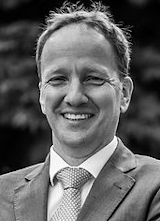It’s All in the Mix: How Monetary and Fiscal Policies Can Work or Fail Together
Presentation of the 23rd Geneva Report
EUI Pierre Werner Chair webinar
Date: 3 March 2021, 2:00 - 3:30 PM (CET)
Ignored in economics textbooks for a long time, the notion of the monetary-fiscal policy mix has made a spectacular come back. The reason is the extraordinary macroeconomic policy support required to tackle the devastating economic fallout from the COVID-19 pandemic. In many countries, the crisis hit while already very low interest rates and record high public debts seemed to severely constrain available policy space. Clearly, neither monetary policy easing, nor fiscal stimulus could on its own pull economies out of the ditch. To deliver the required macroeconomic stabilisation, monetary and fiscal authorities had to join forces and pull together, blurring the traditional boundaries between monetary and fiscal interventions. Are we witnessing a policy revolution that will shatter the decades-old consensus on the respective roles of central banks and treasuries? Or are we just going through an epic stress test motivating an adaptation of the paradigm in place?
The 23rd Geneva Report on the World Economy shows how monetary and fiscal authorities have been rediscovering how to exploit complementarities between their instruments most effectively. It stresses that the desirable coordination between central banks and treasuries can only work if the credibility of their commitment to desirable long-term goals – healthy growth under price stability and public debt sustainability – is preserved and backed by a resilient institutional framework. To restore the ability to deploy an adequate policy response to current and future disturbances, the report urges policymakers to develop a strategy aimed at regaining policy space on both sides of the mix. It argues that an internationally coordinated effort to correct excessive saving and insufficient investment globally could raise equilibrium interest rates and set in motion a virtuous circle of stronger growth and decreasing indebtedness(download the full report on VoxEu.org).
Chair:
- Ramon Marimon (Pierre Werner Chair and Professor of Economics, EUI)
Speakers (and authors of the report):
- Elga Bartsch (Head of Macro Research, BlackRock Investment Institute)
- Agnès Bénassy-Quéré (Professor, Paris School of Economics - University of Paris 1 Panthéon-Sorbonne)
- Giancarlo Corsetti (Professor of Macroeconomics, University of Cambridge)
- Xavier Debrun (Advisor, Research Department, National Bank of Belgium)
Panelists:
- Catherine L. Mann (Global Chief Economist,CitiBank)
- Ricardo Reis (Professor of Economics, LSE)
- Guntram Wolff (Director, Bruegel)
Recording of the event
Speakers
Agnès Bénassy-Quéré is Chief Economist at the French Treasury, on leave from University of Paris 1 Panthéon-Sorbonne and Paris School of Economics where she is a Professor of economics. Prior to moving to the Treasury, she was a Member of the French macro-prudential authority, the tax advisory council, the productivity council, the Franco-German council of economic experts, and the Banque of France general board. She was also in charge of the CEPR European Economic Architecture Research and Policy Network. She was a non-resident fellow at Bruegel and a member of the CESIfo network. From 2012 until 2017, she chaired the French Council of Economic Advisors. Prior positions include Director of CEPII, the French research institute in international economics (2006-2012), and academic positions at École Polytechnique, the University of Paris-Ouest and the University of Lille 2. Her research interests focus on the international monetary system and European macroeconomic policy.

Elga Bartsch heads up economic and markets research of the Blackrock Investment Institute (BII). BII provides connectivity between BlackRock’s portfolio managers, originates economic and market research and publishes insights. Prior to joining BlackRock, Dr Bartsch was Global Co-Head of Economics and Chief European Economist at Morgan Stanley in London. She started her career as a research associate at the Kiel Institute for the World Economy, a large German economic think-tank where she worked at the President’s office and managed the Advanced Studies in International Economic Policy Research, a post-graduate program in international macroeconomics. Dr Bartsch has more than 20 years of macro research experience and is a member of the ECB Shadow Council and a trustee of the IFO Institute for economic research. She also served on and chaired the Economic and Monetary Policy Committee of the German Banking Association. Having studied at the University of Hannover and the London School of Economics, Elga graduated with a Master’s degree from Kiel University where she subsequently also completed a PhD.

Giancarlo Corsetti (Ph.D. Yale, 1992), Fellow of the British Academy, is Professor of Macroeconomics at Cambridge University, fellow of Clare College. He has previously taught at the European University Institute in Florence, as Pierre Werner Chair, and the Universities of Rome III, Yale and Bologna. Corsetti is a leading scholar in international economics and open macro with pioneering contributions on currency, financial and sovereign crises, monetary and fiscal policy in open economy, the international transmission and global imbalances, and the economics of monetary unions. Corsetti is a research consultant at the European Central Bank and the Bank of England and a regular visiting professor in central banks and international institutions. He is a research fellow of the Centre for Economic Policy Research CEPR, where he served as co-director of the International Macroeconomic Programme between 2004 and 2015. He is a member the European Economic Association, where he served as a member of the council, and Program Chairman of the 2007 Annual Congress in Budapest.
Xavier Debrun is an advisor in the Research Department of the National Bank of Belgium. He studied economics at the University of Namur and the Graduate Institute in Geneva where he obtained a Ph.D. in International Economics. Xavier spent most of his 20-year professional career in the Fiscal Affairs and Research Departments of the International Monetary Fund (IMF). In 2006-07, he was a visiting Fellow at Bruegel and a visiting professor of international economics at the Graduate Institute in Geneva. His research interests include international policy coordination, the economics of currency unions, and macro-fiscal issues, including debt sustainability assessments, the stabilizing role of fiscal policy, and the design of fiscal policy rules. His work has been disseminated in peer-reviewed journals, IMF flagship reports, and conference volumes.
Catherine L. Mann is the Global Chief Economist at Citibank where she is responsible for thought leadership, research guidance of a global team of economists, and cross-fertilization of research across macroeconomics, fixed-income, and equities. Previously she was Chief Economist at the OECD and Finance Deputy to the G20, Rosenberg Professor of Global Finance at Brandeis University, and 20-plus years in Washington, DC including at the Peterson Institute for International Economics, Federal Reserve Board of Governors, President's Council of Economic Advisers, and the World Bank. Dr. Mann received her PhD in Economics from the Massachusetts Institute of Technology and her undergraduate degree is from Harvard University. Her written work includes more than 85 scholarly articles and seven books.

Ricardo Reis is the A.W. Phillips Professor of Economics at the London School of Economics. Recent honors include the 2016 Bernacer prize for best European economist under the age of 40 working in macroeconomics and finance, and the 2017 Banque de France / Toulouse School of Economics junior prize in monetary economics, finance, and bank supervision for a researcher of any nationality based in Europe. Professor Reis is an academic consultant at the Bank of England and the Federal Reserve system, he directs the ESRC Centre for Macroeconomics in the UK, is a recipient of an ERC grant from the EU, and serves on the council or as an advisor of multiple organizations. He has published widely on macroeconomics. His main areas of research are inflation expectations, unconventional monetary policies and the central bank’s balance sheet, disagreement and inattention, business cycle models with inequality, automatic stabilizers, sovereign-bond backed securities, and the role of capital misallocation in the European slump and crisis. His public service includes writing a weekly column for the Portuguese press and developing European Safe Bonds (ESBies). Professor Reis received his PhD from Harvard University, and was previously on the faculty at Columbia University and Princeton University.

Guntram Wolff is the Director of Bruegel. His research focuses on the European economy and governance, on fiscal and monetary policy and global finance. He regularly testifies at the European Finance Ministers' ECOFIN meeting, the European Parliament, the German Parliament (Bundestag) and the French Parliament (Assemblée Nationale). From 2012-16, he was a member of the French prime minister's Conseil d'Analyse Economique. Guntram Wolff is also a member of the Solvay Brussels School's international advisory board of the Brussels Free University. He joined Bruegel from the European Commission, where he worked on the macroeconomics of the euro area and the reform of euro area governance. Prior to joining the Commission, he was coordinating the research team on fiscal policy at Deutsche Bundesbank. He also worked as an adviser to the International Monetary Fund. He holds a PhD from the University of Bonn, studied economics in Bonn, Toulouse, Pittsburgh and Passau and previously taught economics at the University of Pittsburgh and at Université libre de Bruxelles.